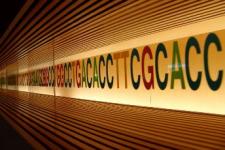All about the base: New businesses eye the opportunities in managing genome data
By The Economist,
The Economist
| 06. 25. 2016
The project to understand the human genome has long promised to revolutionise the way that diseases are diagnosed, drugs are designed and even the way that medicine is practised. An ability to interpret human genetic information holds the promise of doing everything from predicting which drugs will work on a particular patient to identifying a person’s predisposition to develop diseases.
Genomic information is already transforming some medical practices. Sequencing has changed the way that fetuses are screened for Down’s syndrome, from a risky invasive test to one where abnormalities in fetal DNA can be picked up from blood drawn from the mother. In time this sort of method will extend to other genetic disorders and other medical applications. One area of promise is treating some types of cancer. Using blood tests to detect genetic changes in tumours could allow doctors to discover more quickly when drugs are no longer effective. This is so promising that there is already speculation that performing such “liquid” biopsies could be a $11 billion business by 2022.
Realising the vast potential of genomic medicine is...
Related Articles
By Pete Shanks
| 02.27.2026
Last month, we published “The Shameful Legacy of Tuskegee” which focused on a proposed experiment in Guinea-Bissau. The study’s plan echoed the notorious Tuskegee disaster, withholding safe, effective vaccines against hepatitis B from some newborns while inoculating others. It was to be financed by the U.S. but performed by a controversial Danish team. That project provoked a multi-national outcry, leading to a remarkable response from the World Health Organization:
WHO has significant concerns regarding the study’s scientific...
By Jenn White, NPR | 02.26.2026
By Kiana Jackson and Shannon Stubblefield, New Disabled South | 02.09.2026
"MC0_8230" via Wikimedia Commons licensed under CC by 2.0
This report documents a deliberate assault on disabled people in the United States. Not an accident. Not a series of bureaucratic missteps. An assault that has been coordinated across agencies...
By Scott Solomon, The MIT Press Reader | 02.12.2026
Chris Mason is a man in a hurry.
“Sometimes walking from the subway to the lab takes too long, so I’ll start running,” he told me over breakfast at a bistro near his home in Brooklyn on a crisp...




